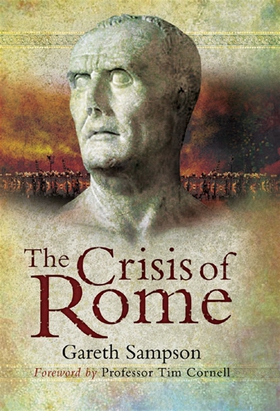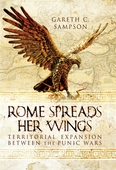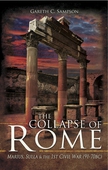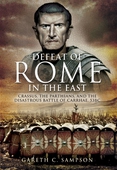
Lägg till önskelistan
The Crisis of Rome e-bok
Pris
115 kr
Exciting account of one of the Roman Republic's greatest crises.
In the later 2nd century BC, after a period of rapid expansion and conquest, the Roman Republic found itself in crisis. In North Africa her armies were already bogged down in a long difficult guerrilla war in a harsh environment when invasion by a coalition of Germanic tribes, the Cimbri, Teutones and Ambrones, threatened Italy and Rome itself, inflicting painful defeats on Roman forces in pitched battle.
Gaius Marius was the ...
E-Bok
115 kr
Pris
Förlag
Pen and Sword
Utgiven
23 Februari 2021
Längd
192 sidor
Genrer
Historia & Arkeologi, Fackböcker
Språk
English
Format
epub
Kopieringsskydd
Vattenmärkt
ISBN
9781848846951
Exciting account of one of the Roman Republic's greatest crises.
In the later 2nd century BC, after a period of rapid expansion and conquest, the Roman Republic found itself in crisis. In North Africa her armies were already bogged down in a long difficult guerrilla war in a harsh environment when invasion by a coalition of Germanic tribes, the Cimbri, Teutones and Ambrones, threatened Italy and Rome itself, inflicting painful defeats on Roman forces in pitched battle.
Gaius Marius was the man of the hour. The first war he brought to an end through tactical brilliance, bringing the Numidian King Jugurtha back in chains. Before his ship even returned to Italy, the senate elected Marius to lead the war against the northern invaders. Reorganizing and reinvigorating the demoralized Roman legions, he led them to two remarkable victories in the space of months, crushing the Teutones and Ambrones at Aquiae Sextae and the Cimbri at Vercellae.
The Roman army emerged from this period of crisis a much leaner and more professional force and the author examines the extent to which the 'Marian Reforms' were responsible for this and the extent to which they can be attributed to Marius himself.







